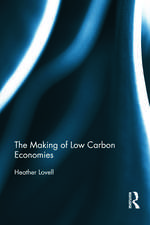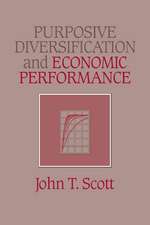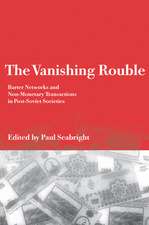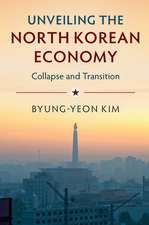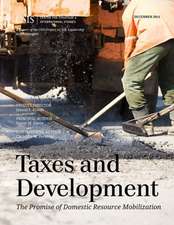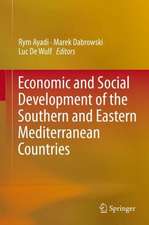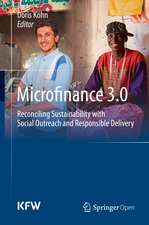Puzzle and Paradox: A Political Economy of Madagascar
Autor Mireille Razafindrakoto, François Roubaud, Jean-Michel Wachsbergeren Limba Engleză Hardback – 5 feb 2020
Preț: 725.57 lei
Preț vechi: 843.69 lei
-14% Nou
Puncte Express: 1088
Preț estimativ în valută:
138.83€ • 145.35$ • 114.88£
138.83€ • 145.35$ • 114.88£
Carte tipărită la comandă
Livrare economică 05-19 aprilie
Preluare comenzi: 021 569.72.76
Specificații
ISBN-13: 9781108488334
ISBN-10: 1108488331
Pagini: 302
Dimensiuni: 156 x 235 x 21 mm
Greutate: 0.54 kg
Editura: Cambridge University Press
Colecția Cambridge University Press
Locul publicării:New York, United States
ISBN-10: 1108488331
Pagini: 302
Dimensiuni: 156 x 235 x 21 mm
Greutate: 0.54 kg
Editura: Cambridge University Press
Colecția Cambridge University Press
Locul publicării:New York, United States
Cuprins
Foreword; Acknowledgements; Abbreviations and acronyms; General introduction; 1. The Malagasy mystery through the lens of economic growth and development theories; 2. Milestones for a political economy of Madagascar's trajectory; 3. Structural assets; 4. Obstacles; 5. Elites in Madagascar: a sociography; General conclusion; Timeline; Glossary of Malagasy terms; References; Index.
Recenzii
'The economy of Madagascar is quite unlike that of other states on the African continent. Puzzle and Paradox is a rare attempt to understand this phenomenon at a fundamental level. This book is sure to make us reconsider the entire issue of development much more critically.' Maurice Bloch, London School of Economics
'This book develops a skillful and timely perspective of Madagascar's political economy in order to address why income per head in Madagascar declined by one third between 1950 and 2015, while tripling in other sub-Saharan economies. This assessment of the potential causes, underlying the unusual short cyclicity of economic booms and political bursts, will be helpful in designing sustainable progressive reforms, especially at a time when sustainable development goals are focusing on local developments.' Pascal Petit, CNRS Director of Research, Centre d'Economie de Paris Nord, University of Paris
'This book provides a convincing answer to the riddle of Madagascar, a poor country despite its many assets. Madagascar's misfortune has its roots in a hierarchical, atomized society whose secular immobilism is marked by brief surges of hope repeatedly dashed by ruinous political and economic crises.' Jean Fremigacci, University of Tananarive
'This book develops a skillful and timely perspective of Madagascar's political economy in order to address why income per head in Madagascar declined by one third between 1950 and 2015, while tripling in other sub-Saharan economies. This assessment of the potential causes, underlying the unusual short cyclicity of economic booms and political bursts, will be helpful in designing sustainable progressive reforms, especially at a time when sustainable development goals are focusing on local developments.' Pascal Petit, CNRS Director of Research, Centre d'Economie de Paris Nord, University of Paris
'This book provides a convincing answer to the riddle of Madagascar, a poor country despite its many assets. Madagascar's misfortune has its roots in a hierarchical, atomized society whose secular immobilism is marked by brief surges of hope repeatedly dashed by ruinous political and economic crises.' Jean Fremigacci, University of Tananarive
Notă biografică
Descriere
Analyses the economic and political history of Madagascar from independence to the early twenty-first century.

